Điểm nhấn
-
 Hội thảo “Thực trạng người Việt Nam hồi hương từ Vương quốc Anh giai đoạn 2014 - 2023”
Hội thảo “Thực trạng người Việt Nam hồi hương từ Vương quốc Anh giai đoạn 2014 - 2023”
-
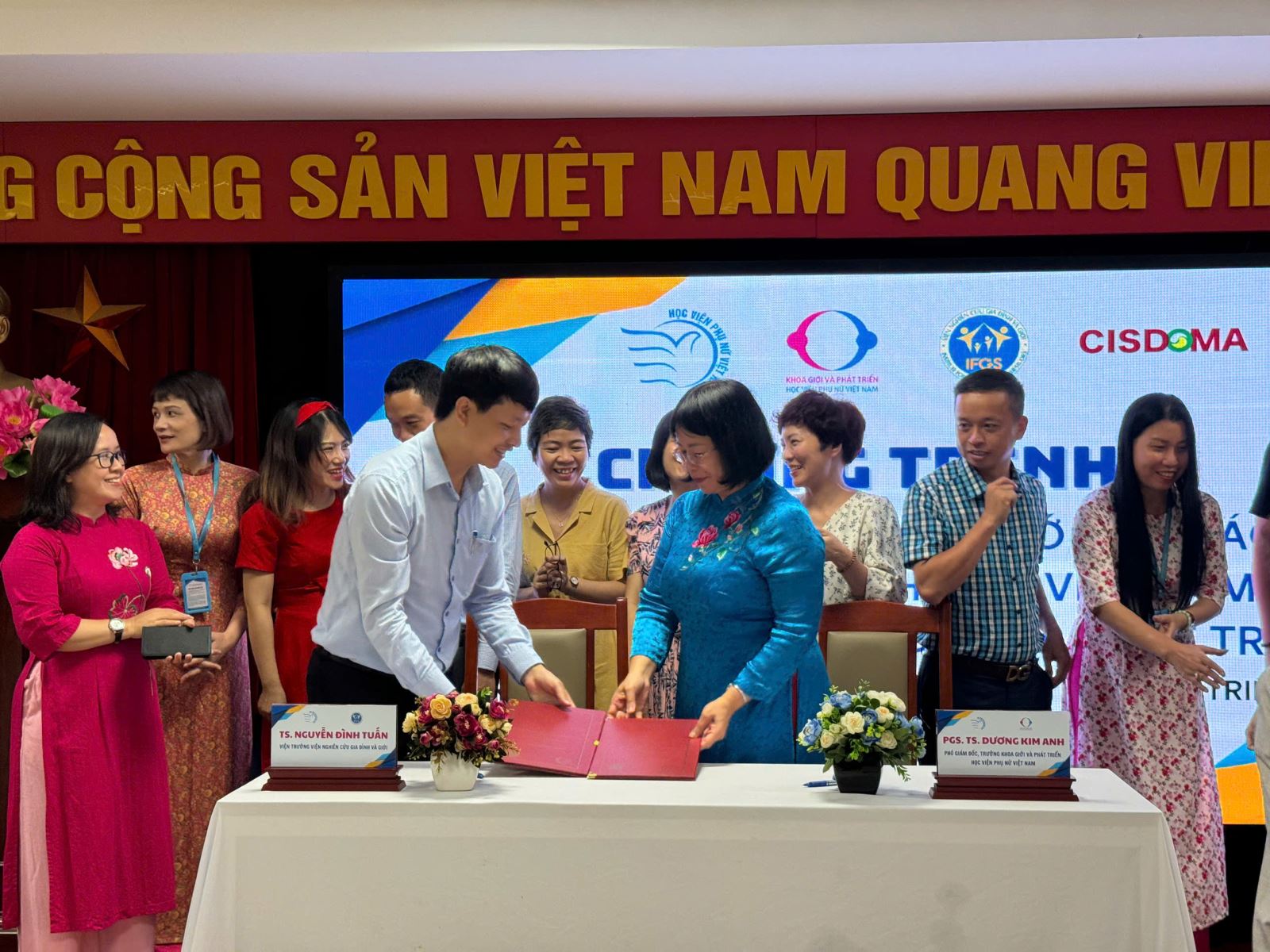 Lễ Ký kết biên bản ghi nhớ hợp tác giữa Học viện Phụ nữ Việt Nam với Viện Nghiên cứu Gia đình và Giới
Lễ Ký kết biên bản ghi nhớ hợp tác giữa Học viện Phụ nữ Việt Nam với Viện Nghiên cứu Gia đình và Giới
-
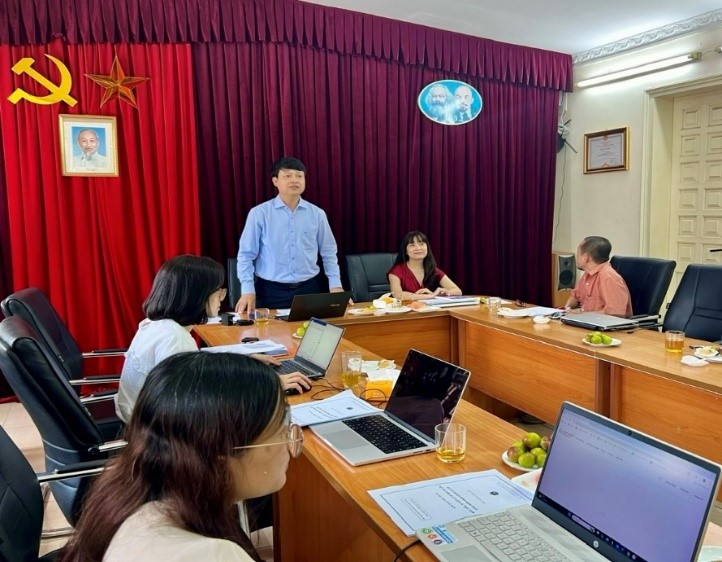 Hội thảo khoa học: "Bộ chỉ số gia đình hạnh phúc: Một số vấn đề lý luận và thực tiễn"
Hội thảo khoa học: "Bộ chỉ số gia đình hạnh phúc: Một số vấn đề lý luận và thực tiễn"
-
 Tọa đàm khoa học "Vận dụng lý thuyết trong nghiên cứu khoa học xã hội"
Tọa đàm khoa học "Vận dụng lý thuyết trong nghiên cứu khoa học xã hội"
-
 Hội nghị Đối thoại giữa Chi ủy, Lãnh đạo viện với đảng viên, viên chức và người lao động Viện nghiên cứu Gia đình và Giới 6 tháng đầu năm 2024
Hội nghị Đối thoại giữa Chi ủy, Lãnh đạo viện với đảng viên, viên chức và người lao động Viện nghiên cứu Gia đình và Giới 6 tháng đầu năm 2024
-
 Chi bộ Viện nghiên cứu Gia đình và Giới tổ chức sinh hoạt chuyên đề: Đoàn kết thống nhất trong Đảng theo tư tưởng Hồ Chí Minh
Chi bộ Viện nghiên cứu Gia đình và Giới tổ chức sinh hoạt chuyên đề: Đoàn kết thống nhất trong Đảng theo tư tưởng Hồ Chí Minh
-
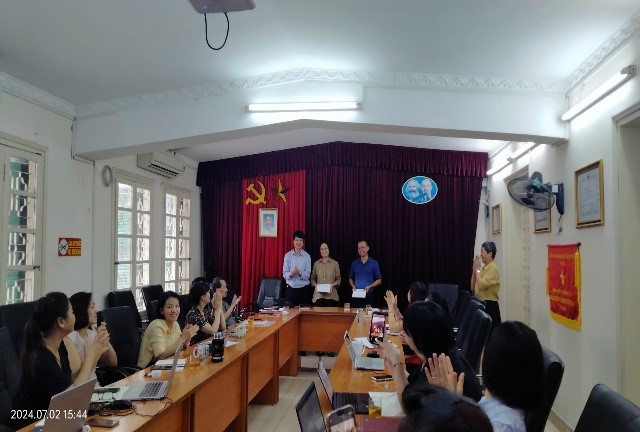 Cuộc thi “Nét đẹp và giá trị gia đình Việt Nam” hưởng ứng Ngày Gia đình Việt Nam 2024
Cuộc thi “Nét đẹp và giá trị gia đình Việt Nam” hưởng ứng Ngày Gia đình Việt Nam 2024
-
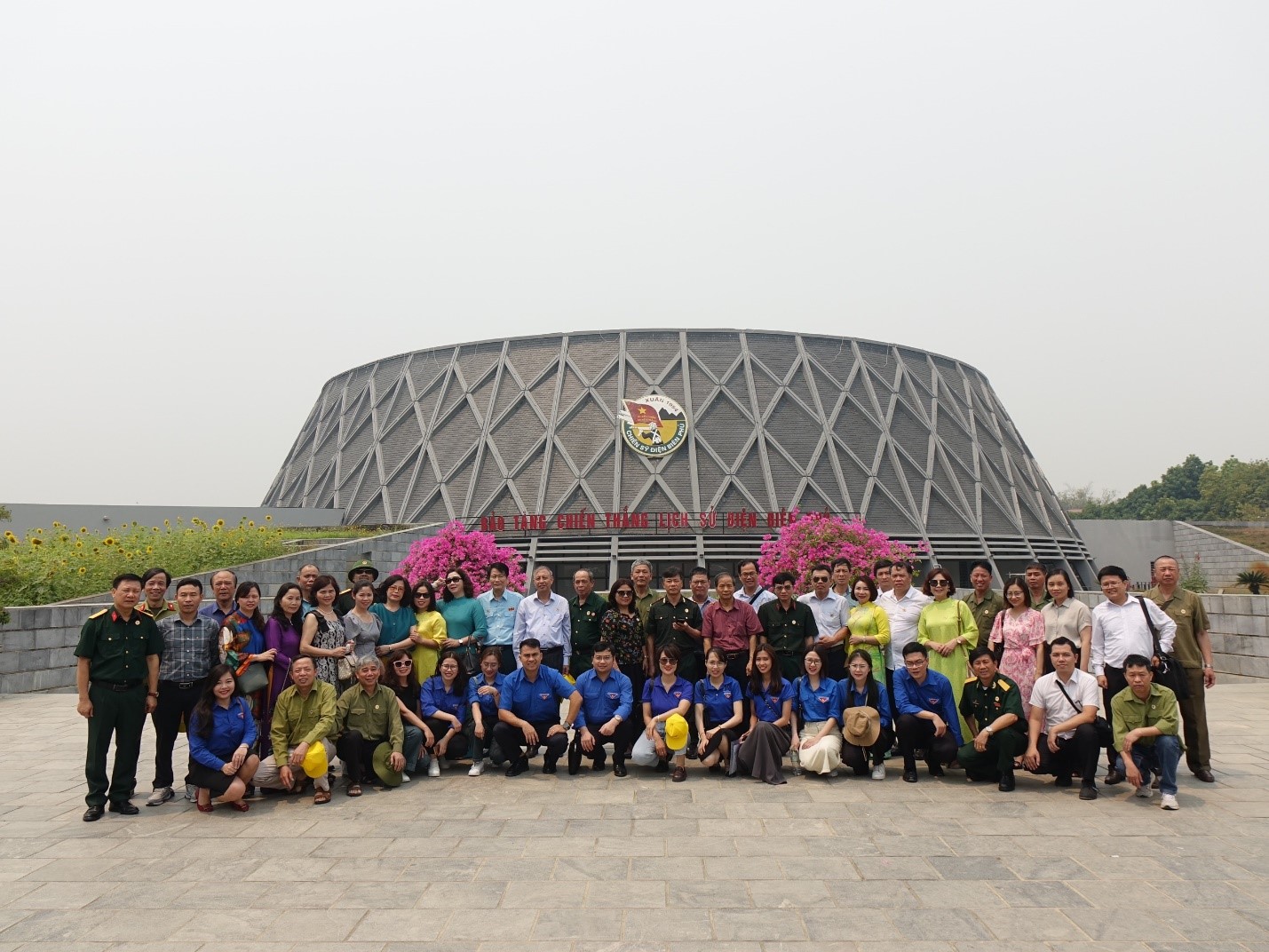 Hội Cựu chiến binh, Đoàn Thanh niên Viện Hàn lâm Khoa học xã hội Việt Nam đi thăm lại chiến trường xưa Điện Biên Phủ
Hội Cựu chiến binh, Đoàn Thanh niên Viện Hàn lâm Khoa học xã hội Việt Nam đi thăm lại chiến trường xưa Điện Biên Phủ
- Tổng mục lục Tạp chí 2023
-
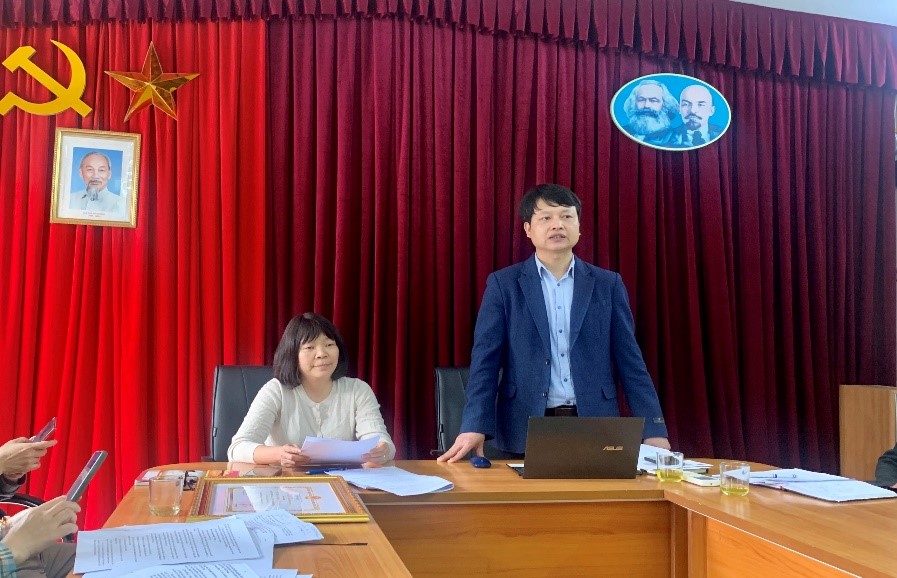 Viện nghiên cứu Gia đình và Giới phát động phong trào thi đua và ký Giao ước thi đua năm 2024
Viện nghiên cứu Gia đình và Giới phát động phong trào thi đua và ký Giao ước thi đua năm 2024
Liên kết web
Số lượt truy cập
100
5157628
Chi tiết tạp chíNo. 1 - 2018
Scientific Seminar: On Situation and Factors Influencing Domestic Violence Today
On June 6th 2018, in Hanoi, Institute for Family and Gender Studies (IFGS) under the Vietnam Academy of Social Sciences (VASS) held a scientific seminar to announce initial findings of the ministerial-level project “Social and economic factors influence domestic violence today” (Code: KHXH-G?/16-19/04). The research project chaired by Dr. Dang Thi Hoa is part of the ministerial-level program “A Comprehensive Study and Assessment of the Family in a Period of Industrialization, Modernization, and International Integration” (or the Family Program) carried out by the Vietnam Academy of Social Sciences (VASS).
The seminar provided an opportunity for scientists to exchange views, share experience and knowledge regarding the project’s theme of domestic violence in Vietnam and survey results under the project.
The seminar was presided over by Prof. Dr. Nguyen Huu Minh, representative of the Program’s Chairing Board and Dr. Dang Thi Hoa, Chairperson of the Project.
The seminar included two sessions. The first one focused on violence between husband and wife. The second presented some findings on violence against children, elderly people and violence prevention and control models in local areas. Presentations at the seminar focused on the current situation of violence between husband and wife and influencing factors, violence against children and violence prevention and control models in the community, specifically, they included the presentations on “Violence between husband and wife – identification from three research projects” by M. A. Bui Thi Huong Tram; “Situation of violence between husband and wife: some initial analyses” by Dr. Truong Thi Thu Thuy; Influences of some cultural factors on violence between husband and wife in present-day families” by M.A Tran Thi Van Nuong, “Violence against children in families: current situation and influencing factors” by M.A Tran Quy Long; “Some findings on violence against the elderly people” by Dr. Le Ngoc Lan; “Domestic violence prevention and control models in the community” by Dr. Tran Thi Hong.
Participants at the seminar made valuable contributions to the authors to improve their reports. For example, Prof. Le Thi Quy suggested researching further about emotional violence, as in fact all forms of violence lead to emotional violence and emotional violence is the consequence of many other forms of violence, therefore more research on this form of violence is needed. Assoc. Prof. Dr. Le Ngoc Van suggested applying ethnological and religious approaches so that the project can generate new results in researching domestic violence.
Concluding the seminar, Dr. Dang Thi Hoa, Chairperson of the research project summed up the discussion, expressed her gratitude to the comments and stressed that the seminar had made important contributions to improving the synthetic report of the research project on domestic violence in Vietnam in current situation.
Under the Ministerial-level program “A Comprehensive Study and Assessment of the Family in a Period of Industrialization, Modernization, and International Integration” (or the Family Program), permitted by the Ministry of Science and Technology and the Vietnam Academy of Social Sciences (the Academy), on March the 16th 2018 at No.27 Tran Xuan Soan, Hai Ba Trung dictrict, Hanoi, the project “Basic Values of Contemporary Family in Vietnam” chaired by Dr. Tran Thi Minh Thi, Director of Institute for Family and Gender Studies (IFGS) held a scientific seminar with the theme “Vietnamese family values in the context of industrialization, modernization, international integration and social development in Vietnam at present and the development trend”.
Attending the seminar were leaders of the IFGS (the hosting agency of the project), representatives of the Family Program Steering Board and Chairmen of projects under the program, a lot of managers and scientists from academies, research institutes, universities, domestic and foreign organizations which study and are interested in marriage and family issues.
Over the last decades, families in many countries have experienced changes in its size, structure, function, characters. In the process, family values tend to individualize and modernize. In order to explore the Vietnamese family values at present and the changing trends in the coming time, in the two years 2016 and 2017, the Institute for Family and Gender Studies (IFGS) carried out the project “Basic Values of Contemporary Family in Vietnam” under the ministerial-level Family Program. The scientific seminar “Vietnamese family values in the context of industrialization, modernization, international integration and social development in Vietnam at present and the development trend” provided an opportunity to share findings of various research projects about Vietnamese family values, exchange views, discuss and consult with scientists, managers and policy makers to improve analyses and make policy recommendations.
In her opening speech at the seminar, Dr. Dang Thi Hoa, Vice Director of the IFGS on behalf of the Institute leaders thanked the participants and said that the seminar aimed at consulting with experts, managers and policy makers from ministries, agencies and sectors on the findings of the research project. Outcomes of the seminar will supplement the findings of the project and suggest policy recommendations to strengthen marital and family relationships in the country’s industrialization, modernization and international integration period.
In her introductory report, Dr. Tran Thi Minh Thi pointed out that marriage and families in Vietnam are experiencing major changes from traditional models to include modern features and become more open. The changes in values and standards have been strongly influencing the attitudes and behaviors of each individual in the present society. The co-existence of traditional values at various levels and modern values when the new values haven’t been fully developed and the old ones haven’t fully faded has created a common pattern of many aspects of Vietnamese marriages and families. Applying the theories of modernization and post-modernization, collectivism and individualism in the context of Doi Moi (or Renovation), integration and development, the research helps shed light on fundamental family values and factors influencing Vietnamese fundamental family values at present, point out some changing trends of fundamental family values in the coming time.
Main contents of the projects include: i) meaning of marriage and family: traditional and modern; individualisticity and collectivity, gender differentiation (timing, context of finding and understanding life partner, criteria to choose partner, deciding marriage, wedding procedure and ceremony; factors of a strong family bond; order of important things in life and so on; ii) Economic values (bread winners of the family, jobs of the family, perception of women working outside home and doing housework, significance of assets and wealthiness; iii) Children values (the number of children, their sexes, having a son, significance of children, education, raising son and daughter and so on); iv) family happiness values; and v) family relationships values. Dr. Tran Thi Minh Thi hoped that at this seminar, scientists and managers will deliver frank comments and ideas for the project’s chairing board and researchers to improve the research findings.
The seminar includes two sessions:
Session 1: Some dimensions of emotional values and family affection in Vietnam at present (chaired by Dr. Tran Thi Minh Thi and Dr. Tran Tuyet Anh, Head of Family Department under the Ministry of Culture, Sport and Tourism). Reports presented during the session focused on analyzing and clarifying some aspects of marriage, family and emotional values, happiness values, the perception of loyalty in marital life, the children values in Vietnamese families at present; influencing factors; traditional and modern dimensions of Vietnamese family values at present; forecasting some stereotyped family values in the coming times; also making some policy recommendations to consolidate good values of Vietnamese families at present. M.A Tran Quy Long, M.A Nguyen Ha Dong and M.A Phan Huyen Dan presented their reports at this session.
Session 2: Some dimensions of economic values, inter-generational relationship and community (chaired by Prof. Dr. Nguyen Huu Minh, Program’s Vice Chairman and Dr. Tran Thi Minh Thi). Speakers provided deep insights into family’s economic values; relations between the family and extended family, community and the Nation; the present inter-generational relationships and so on. Presentations at the sessions were delivered by Dr. Tran Thi Hong, Assoc. Prof. Tran Thi An, M.A Trinh Thai Quang and Dr. Tran Thi Minh Thi.
During the active discussions, scholars, scientists and managers from departments and institutes of the Ministry of Culture, Sport and Tourism; Ministry of Labour, War Invalids and Social Affairs, the Allianz Mission in Vietnam, the Center for Gender, Family and Community Development (GFCD), Institute of Sociology, Vietnam Sociological Association and so on highly appreciated seriousness and professionality of the research and exciting initial findings about dimensions of Vietnamese family values. Comments of the participants will be a useful source of references to expand and complete the findings.
Concluding the seminar, Dr. Tran Thi Minh Thi once again sincerely thanked the participants and their interesting and useful comments. The seminar has strengthened the coordination between researchers and managers to develop policies and social practices regarding families, gender and children. Outcomes of the seminar helped supplemented the findings of the project, suggested policy recommendations to consolidate Vietnamese family values in the context of industrialization, modernization, international integration and social development these days.
Under the Ministerial-level program “A Comprehensive Study and Assessment of the Family in a Period of Industrialization, Modernization, and International Integration” (or the Family Program), on March the 5th 2018 at No.27 Tran Xuan Soan, Hai Ba Trung dictrict, Hanoi, the project “Fundamental Characteristics of Contemporary Marriage in Vietnam and Influencing Factors” (KHXH-G?/16-19/02), chaired by Prof. Dr. Nguyen Huu Minh, former Director of Institute for Family and Gender Studies (IFGS), hosted by the IFGS under the Vietnam Academy of Social Sciences (the Academy) held a scientific seminar with the theme “Fundamental Characteristics of Contemporary Marriage in Vietnam and Influencing Factors”.
Attending the seminar were representatives of the Family Program Steering Board and Chairmen of projects under the program, Dr. Tran Thi Minh Thi – Director of the IFGS, representatives of project hosting agencies, scientists from academies, research institute, universities, organizations and other agencies which study or are interested in marriage and family issues.
In her opening speech, Dr. Tran Thi Minh Thi emphasized on the consistent policy of the Party and State saying that family stability is a decisive factor of the country’s successful industrialization and modernization and socialism. Family plays an important role not only to the development of each individual, but also performs its social function, preserves and passes down national cultural values from generation to generation. Investing in families is investing in sustainable development. The 2009 Vietnam Population and Housing Census and other major family surveys have confirmed that marriage remain popular in Vietnam. At the moment, many forms of family exist and not all of them base on marriage, but many people still believe that marriage should be a premise to form a family. Dr. Tran Thi Minh Thi warmly welcomed all the participants and also pointed out the importance of analyzing marriage indicators (marriage age, marriage certificates, criteria to choose a partner, the right to deciding marriage) so as to identify fundamental characteristics and evaluate the changes of marriages in Vietnam today. In addition, Dr. Tran Thi Minh Thi urged to focus on researching marriages in Vietnam in a systematic and scientific manner to recommend appropriate policies for the development of families in Vietnam. Hopefully, scientists, managers and policy makers will cooperate and support the research on theoretical and practical issues of marriage and family in Vietnam, bring the scientific research to a new high and contribute more to the national construction.
In his introductory report, Prof. Dr. Nguyen Huu Minh made clear of the objectives, methods and initial results of the research project on marriage.
Main contents of the project include (1) identifying features of the formation of marriage (2) identifying features of housing arrangements after wedding (3) identifying couple’s marriage experience, especially in the early period of co-habitation; (4) evaluating some aspects of marriage quality; (5) evaluating the influence of economic, cultural and social conditions on marriage at present; (6) forecasting the changes and characteristics of marriages in the coming times and recommending directions for policies on marriage.
The seminar includes two sessions: Session 1: Marriage – the beginning of a new family (hosted by Prof. Dr. Trinh Duy Luan and Dr. Tran Thi Minh Thi). Reports presented during the session focused on analyzing common features of marriage, the difference in the ways social groups look for and choose partners and housing arrangement after wedding. Session 2: Quality of marital life (chaired by Assoc. Prof. Dr. Le Ngoc Van and Dr. Dang Thi Hoa). Presentations centered around such issues as marriage satisfaction; emotional expression between husband and wife; differences in marital life in Vietnam at present…
The seminar provided a useful academic forum to consult experts, managers and policy makers from ministries and agencies on the project’s findings. The seminar outcomes will supplement the existing project findings and make policy recommendations for strengthening the marital relationship in the industrialization, modernization and international integration periods.
Seminar “Approach and Method of Researching Gender Equality in Ethnic Minority Regions”
On January 29th 2018, in Hanoi, under the State-level research project on “Basic Issues of Gender Equality in Vietnam’s Ethnic Minority Regions” chaired by Prof. Dr. Nguyen Huu Minh, Institute for Family and Gender Studies (IFGS) held a scientific seminar with the theme “Approach and Method of Researching Gender Equality in Ethnic Minority Regions”. The seminar aimed at providing an opportunity to exchange views and discuss theoretical bases, approaches and methods and issues to be addressed in researching gender equality on Vietnam’s ethnic minority regions in the current situation.
Attending the seminar were representatives of state management and research institutes in charge of gender equality and ethnic affairs, for example, the Committee on Ethnic Minority Affairs; Ministry of Labor, War Invalid and Social Affairs; Vietnam Women Union Central Committee; Institute of Anthropology; Institute of Cultural Studies; Vietnam Women’s Academy; Graduate Academy of Social Sciences, some international organizations, such as the World Bank.
The seminar is divided into two sessions. The first session discussed the theoretical bases of researching gender equality in ethnic minority regions. Speakers presented theories that can be used in researching gender equality in ethnic minority regions, such as theories of culture, theories of social identity, theories of biological model, and theories of social changes. Approaches mentioned at the seminar include institutional approach, policy approach, cultural approach, development approach and anthropological approach. At the second session, participants discussed method of researching gender equality in ethnic minority regions. Speakers shared their views on issues of concern in researching gender equality in ethnic minority regions and gender equality indicators in the dimensions of labor, employment, political participation, education- training, healthcare, gender equality in families and domestic violence.
The participants also discussed and made their contributions to researching gender equality in ethnic minority regions, for example, some suggested paying attention to gender issues in different ethnic groups, different age groups and paying attention to gender equality in culture, sports, security and defense.
The Impact of Number of Children on Marital Satisfaction in Vietnam
Abstract: The study aims to investigate the impact of number of children on marital satisfaction in Vietnam today. Data were collected from a survey conducted on 1819 married participants (48% male) in seven cities/ provinces from the North to the South. Marital satisfaction was measured on a self-report scale ranging from 0 to 10, assessing overall marital satisfaction and six specified aspects of marital life. Data on numbers of children and demographics were also collected. The results showed that there was a weak negative correlation between the number of children and several aspects of marital satisfaction. There were also differences in the impact of living areas and marital duration on the association between number of children and marital satisfaction. Similarly to a number of other international research studies, the findings indicate rather strong dependence of number of children on the changing social-economic context in its relationship with marital happiness in Vietnam.
Early Marriage of Women and Concerned Issues via MICS Data Analysis
Abstract: This report presents the findings from an in-depth analysis of early marriage (marriage before age 18) issue based on data from the Vietnam Multiple Indicator Cluster Surveys (MICS) 2006, 2011 and 2014. Bivariate and multivariate analyses are used. Data show that the prevalence of women who early married has occurred across most socio-demographic groups. However, it was more common among women with lower education, women living in the rural and mountainous areas with limited socio-economic development and ethnic minority women. Early marriage women were more likely to be poorer than those who got married from 18th birthday and after. They had higher lifetime number of births and higher rate of children who born alive, then died than those who got married at 18 and older. Overall, the prevalence of early marriage women has declined over time, but the declining pace is quite slow. While the prevalence of early marriage women from Kinh and Hoa-headed households gradually decreased over time, it increased during the period 2006-2011 and declined during the period 2011-2014 for women in ethnic minority-headed households. Based on analysis results recommendations are suggested to prevent early marriage situation among women and girls in Vietnam.
Abstract: In the years since his death, Michel Foucault has become widely recognised as one of the foremost scholars of the twentieth century. While neither a sexologist nor a feminist, his concepts of discourse, care of the self, subject and subjectivity have been extensively adopted by social scientists in studies on gender and sexual issues. His analytical framework allows researchers to foreground, and explain, multiple and often contradictory subject positions rendered by a whole range of relevant discourses and ‘discursive practices’ that women in various societies have taken up in the search for sexual equality and wellbeing. This paper aims to introduce the framework and discuss its applicability to the study of sexuality especially in the rapidly developing context of a fast globalizing Southeast Asian country such as Vietnam.
Individual and School Factors Affecting Students’ Happiness and Well-being in Vietnam
Abstract: Based on a sample of 402 students, of which 47.3% were male, from 10th to 12th grade of Vinh Bao High School in Hai Phong, the article analyses the school factors that characterize the two groups of happy and unhappy students. The results indicate that school factors including grade, learning pressure, self-worth, peer support, teacher support, gender of teacher, and having a favorite teacher or not, have weak correlations between the two examined student groups (except learning outcome factor). The results suggest that school-based activities should address the specific characteristics of happy and unhappy children in order to create meaningful school life and to let them feel more joyful when they go to school.

